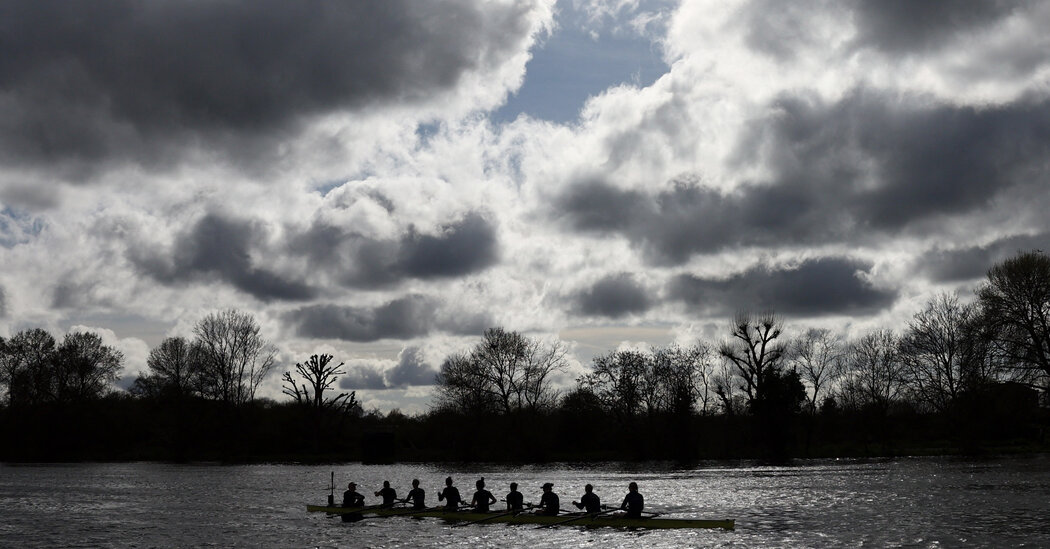
The warning was stern: Do not enter the water. Not because of the tide. Not because of sharks. Because of the sewage.
For almost two centuries, rowers from Oxford University have raced their rivals from Cambridge in a contest that typically ends with jubilant members of the victorious crew jumping into the River Thames in celebration.
This year they will be staying as dry as possible.
After the discovery of elevated levels of E. coli in the river, rowers have been urged to stay out of the water, to cover any open wounds and to wash themselves down at a dedicated cleansing station at the finish.
The warning from organizers of the annual competition known as the Boat Race is the most striking symbol of the dire and deteriorating state of Britain’s rivers and coastlines. E. coli, which can be contracted from inadequately treated water supplies, can cause a number of symptoms including diarrhea, stomach cramps and occasionally fever. According to Britain’s health service, a small number of people can also develop hemolytic uraemic syndrome which can sometimes lead to kidney failure and death.
In recent years, England’s private water companies have faced fierce criticism for discharging sewerage and untreated rainwater into waterways and onto beaches when rainfall is heavy — a tactic they use to prevent the system from backing up.
